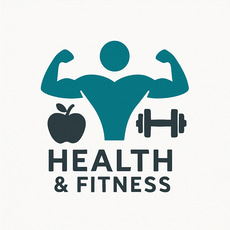Warning Signs of Substance Abuse You Shouldn’t Ignore
Discover the 10 key warning signs of substance abuse that are often overlooked. This guide helps you recognize behavioral, physical, and emotional changes that may indicate a deeper issue—so you can seek help or support a loved one before it’s too late.
SUBSTANCE ABUSE & ADDICTION
5/14/20253 min read
10 Warning Signs of Substance Abuse You Shouldn’t Ignore
Substance abuse is a growing concern that affects individuals, families, and communities across the globe. Whether it involves alcohol, prescription medications, or illicit drugs, substance misuse can lead to severe health, social, and emotional consequences. Recognizing the early warning signs is essential for getting help before the problem escalates.
In this blog, we’ll explore 10 common signs of substance abuse that may indicate someone is struggling—even if they haven't openly admitted it. Whether you're concerned about a loved one or assessing your own behavior, awareness is the first step toward recovery.
1. Sudden Behavioral Changes
One of the earliest and most noticeable signs of substance abuse is a sudden shift in behavior or personality. This may include:
Increased secrecy or isolation
Mood swings or irritability
Loss of interest in hobbies or relationships
Difficulty concentrating or remembering things
If someone you know seems like a different person, especially without a clear reason, it may be time to take a closer look.
2. Neglecting Responsibilities
Substance abuse often leads to problems at work, school, or home. This can manifest in:
Frequent absences or tardiness
Missed deadlines or declining performance
Neglecting household or family duties
As the addiction takes priority, everyday responsibilities fall by the wayside—sometimes abruptly.
3. Physical Changes
Prolonged substance use often impacts physical appearance. Warning signs include:
Bloodshot eyes or dilated pupils
Sudden weight loss or gain
Unusual body odors
Poor hygiene or neglected grooming
Some substances also leave marks—such as track marks from needle use or nasal damage from snorting drugs.
4. Financial Problems
Addiction can be expensive. People struggling with substance abuse may begin to:
Borrow or steal money
Sell personal belongings
Struggle to pay bills or cover basic needs
Frequent requests for money without explanation or poor financial decision-making can indicate a deeper issue.
5. Risky Behavior
Drugs and alcohol can impair judgment and lower inhibitions, often leading to reckless or dangerous behavior. This might include:
Driving under the influence
Unsafe sexual activity
Legal issues or arrests
Sudden changes in social circles or environments
Engaging in risky behaviors can have long-term consequences, both legally and health-wise.
6. Changes in Sleep Patterns
Substance use often disrupts normal sleep routines. You may notice:
Insomnia or frequent sleep disturbances
Sleeping excessively or at odd hours
Appearing tired or fatigued during the day
Stimulants like cocaine or meth may cause restlessness, while depressants like opioids or alcohol can induce deep, prolonged sleep.
7. Denial or Defensiveness
When confronted, people dealing with substance abuse often deny the problem or react defensively. Responses may include:
Minimizing their usage ("It’s not that bad")
Blaming others for their behavior
Avoiding conversations about their substance use
Defensiveness may be a protective mechanism rooted in shame, fear, or lack of self-awareness.
8. Mental Health Struggles
Substance abuse and mental health conditions frequently go hand-in-hand. Some common co-occurring issues include:
Anxiety
Depression
Paranoia or hallucinations
Mood instability
In some cases, people turn to substances to self-medicate mental health issues, while in others, substance use may trigger or worsen symptoms.
9. Increased Tolerance and Withdrawal Symptoms
Developing a higher tolerance—needing more of a substance to achieve the same effect—is a clear indicator of misuse. In addition:
Withdrawal symptoms may appear when the substance isn’t used (e.g., tremors, nausea, irritability, sweating)
The person may use the substance just to feel “normal”
Physical dependence is a red flag that professional help may be needed immediately.
10. Social Withdrawal
People struggling with substance use may begin to pull away from friends, family, and social activities. This might show up as:
Avoiding loved ones
Cancelling plans or isolating in their room
Losing interest in previously enjoyed activities
This distancing often stems from shame, a desire to hide use, or a preoccupation with getting or using the substance.
When to Seek Help
Recognizing the warning signs is only the beginning. If you or someone you know is displaying several of these symptoms, it’s important to seek help. Addiction is a medical condition—not a personal failure—and there are many resources available, including:
Primary care doctors
Mental health counselors
Addiction specialists
Support groups (e.g., Alcoholics Anonymous, Narcotics Anonymous)
Inpatient and outpatient treatment programs
Early intervention can make a significant difference in recovery outcomes. The sooner support is offered or requested, the better.
Supporting a Loved One
If you're worried about someone, it can be hard to know how to approach the topic. Here are a few tips:
Choose a calm, private setting
Speak from a place of concern, not judgment
Be specific about behaviors you've noticed
Encourage professional help, but don’t force it
Set healthy boundaries for yourself
Remember, while you can offer support, the decision to seek treatment must ultimately come from the individual.
Final Thoughts
Substance abuse often develops gradually, making the warning signs easy to overlook—especially when they’re disguised as stress, burnout, or emotional turmoil. But when you pay attention to changes in behavior, appearance, and mood, you can help identify the problem early and take steps toward healing.
Whether you're struggling personally or worried about someone else, know that support is available. Recovery is possible, and recognizing the signs is the first step on that journey.
